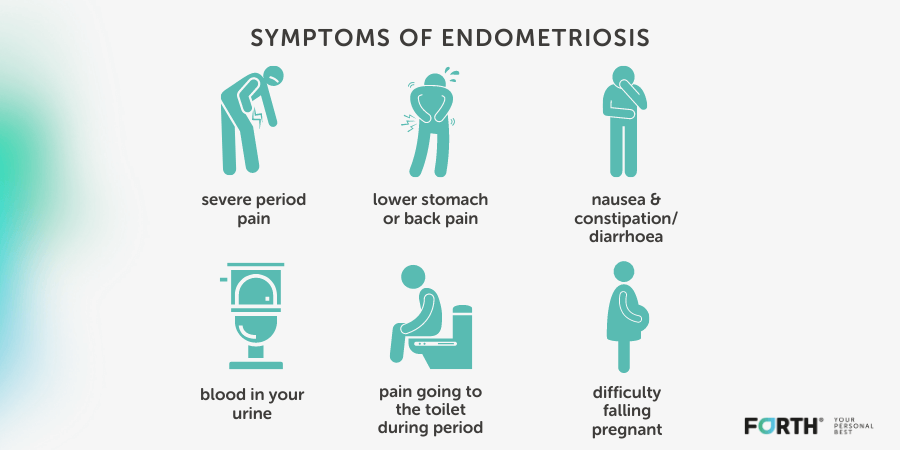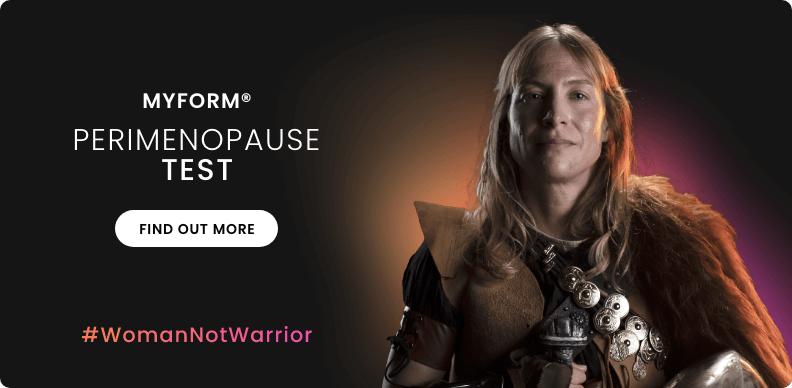6 mins read
How Do Ovaries Impact Women’s Health?

Ovarian health isn’t just linked to the reproductive system. The ovaries produce hormones that affect the overall health and wellbeing of a woman, such as her musculoskeletal health, cardiovascular health, and neurological health.
Women can experience up to 480 fluctuations in their female hormones over the course of a menstrual cycle. Tracking these hormones can give you a deeper understanding of your hormone fluctuations and can help to identify a hormone imbalance.
In this post, we’ll be taking a look at the role of the ovaries in hormone production and the impact that hormonal imbalances can have on women’s health.
The Role Of Ovaries In Hormone Production
Women have two ovaries and these form part of the female reproductive system. The ovaries are oval in shape, around four centimetres long, and sit on either side of the womb. The ovaries have two main reproductive functions, they produce eggs and they produce the hormones oestrogen and progesterone.
There are three types of oestrogen:
- Oestradiol. The common type during a woman’s reproductive stage.
- Oestriol. The main oestrogen during pregnancy.
- Oestrone. The only oestrogen the body produces after menopause.
Oestrogen is important as it’s one of the main sex hormones that controls the menstrual cycle and controls the changes that take place from puberty through to menopause.
Progesterone is also an essential hormone. Once an egg is fertilised, progesterone prepares the tissue lining of the womb to allow the egg to implant. Progesterone also plays an important role in maintaining the early stages of pregnancy.

How Hormones Affect A Women’s Health & Wellbeing
Not only does oestrogen and progesterone play an important role in a woman’s reproductive system, but they also impact other areas of their health.
Oestrogen also:
- Controls body temperature
- Helps with memory function
- Supports collagen levels in the skin
- Increases libido
- Lowers the risk of heart disease
- Maintains bone density
Progesterone also:
- Reduces anxiety and increases sleepiness
- Slows the digestive process
- Builds and maintains bone density
- Promotes appetite and fat storage (key in pregnancy)
- Helps to mature breast tissue and prepare breast milk
The Ovaries & Hormone Imbalance
There are various natural and medical reasons why hormones can become “imbalanced”, these include:
- Natural Menopause (including primary ovarian insufficiency (POI) and medically induced menopasue
- Polycystic ovary syndrome (PCOS)
- Hormone replacement or birth control medications
- Imbalances in lifestyle choices around food and exercise
An imbalance in the hormones oestrogen and progesterone can cause a range of problems for a woman’s health.
Symptoms of low oestrogen include:
- Irregular periods
- Periods stop
- Hot flushes where low oestrogen occurs as a result of menopause
- Dry skin
- Difficulty sleeping
- Vaginal dryness
- Low sex drive
- Mood swings
- Menstrual headaches just before menstruation

Too much oestrogen can cause:
- Weight gain around the waist, hips, and thighs
- Heavy or light periods
- Increased symptoms of premenstrual syndrome (PMS)
- Lumps in the breast
- Fibroids in the womb
- Tiredness
- Loss of sex drive
- Low mood and feeling anxious
Low progesterone can result in:
- Abnormal or irregular periods
- Missed periods
- Difficulties getting pregnant
- Higher risk of miscarriage or an early delivery for pregnant women
- Spotting and abdominal pain during pregnancy
Higher levels of progesterone may cause (especially if there’s too much progesterone in relation to oestrogen):
- Increased symptoms of premenstrual syndrome (PMS)
- Raising insulin levels
- Decrease insulin sensitivity
- Cause weight gain
- Lower sex drive
- Low mood
Hormonal Imbalance & Polycystic Ovary Syndrome
Polycystic Ovary Syndrome (PCOS) affects about1 in 10 women in the UK. It’s unclear what the exact cause of PCOS is, however, it involves an imbalance in the reproductive hormones.
PCOS often runs in families and symptoms relate to higher levels of the hormone testosterone and insulin (the hormone responsible for maintaining normal blood sugar).
PCOS can affect your periods, fertility, and hormones. When a woman has PCOS, the egg in her ovary may not develop properly or may not be released. PCOS can cause problems such as infertility and “cysts” can also develop on the ovaries.
Hormonal Imbalance & Endometriosis
Endometriosis affects around 1 in 10 women of reproductive age in the UK. It is a condition where the inner lining of the womb is found in areas of the pelvis including the womb, ovaries, and fallopian tubes. For some women, the lining of their womb can also be found in their abdomen, vagina, rectum, bowel, and bladder. These endometriotic cells also respond to oestrogen and progesterone that are released every month and bleed when a woman has her period, however, there is nowhere for the blood to leave the body, which can cause pain, inflammation, scar tissue, and cysts.
Endometriosis can have an impact on both physical and emotional health and can cause infertility. The cause of endometriosis is unknown but symptoms are related to female hormones.

The Ovaries & Menopause
Menopause is a natural process that happens due to reduced ovarian responsiveness and a decline in the production of hormones and eggs. The average age for a woman to start menopause in the UK is age 51. However, women can experience a decline in their oestrogen levels at an earlier age. When the ovaries no longer produce the hormones oestrogen and progesterone. the menstrual cycle will stop.
Oestrogen maintains bone density. When oestrogen levels drop during perimenopause and menopause women are at risk of developing osteoporosis, a condition that causes the bones to weaken.
Research suggests that up to 20% of bone loss can happen during menopause and approximately 1 in 10 women over the age of 60 are affected by osteoporosis worldwide.
During menopause, lower levels of oestrogen can also cause:
- Mood swings
- Vaginal dryness, which can cause irritation and sex can be painful or uncomfortable
- Hot flushes
- Night sweats
- Loss of muscle tone
- Changes to sleep patterns
- Depression and anxiety attacks
- Memory or concentration problems
To help with the symptoms of menopause, hormone replacement therapy (HRT) is often prescribed. HRT contains oestrogen and progesterone replaces the natural oestrogen the body was making and can help relieve menopausal symptoms. Vaginal oestrogen creams can also help with vaginal dryness.
Summary
The right amounts of oestrogen and progesterone are crucial to not only a woman’s reproductive health, but her overall health and wellbeing too.
Hormonal imbalances can be caused by a number of reasons, including conditions such as PCOS and natural life events such as the menopause. When hormones are imbalanced they can cause problems such as irregular periods, weight changes, and hot flushes.
To understand any symptoms or changes you are experiencing, get a clear insight into your hormone network through our advanced female hormone test, MyFORM™. With the help of our menopause expert, you can receive an action plan based on your results and a clinical analysis.

- Health scores calculated
Close
This information has been medically written by Dr Thom Phillips
Thom works in NHS general practice and has a decade of experience working in both male and female elite sport. He has a background in exercise physiology and has published research into fatigue biomarkers.

Dr Thom Phillips
Head of Clinical Services
Related articles
Like this article? Here are some more based on similar topics.




